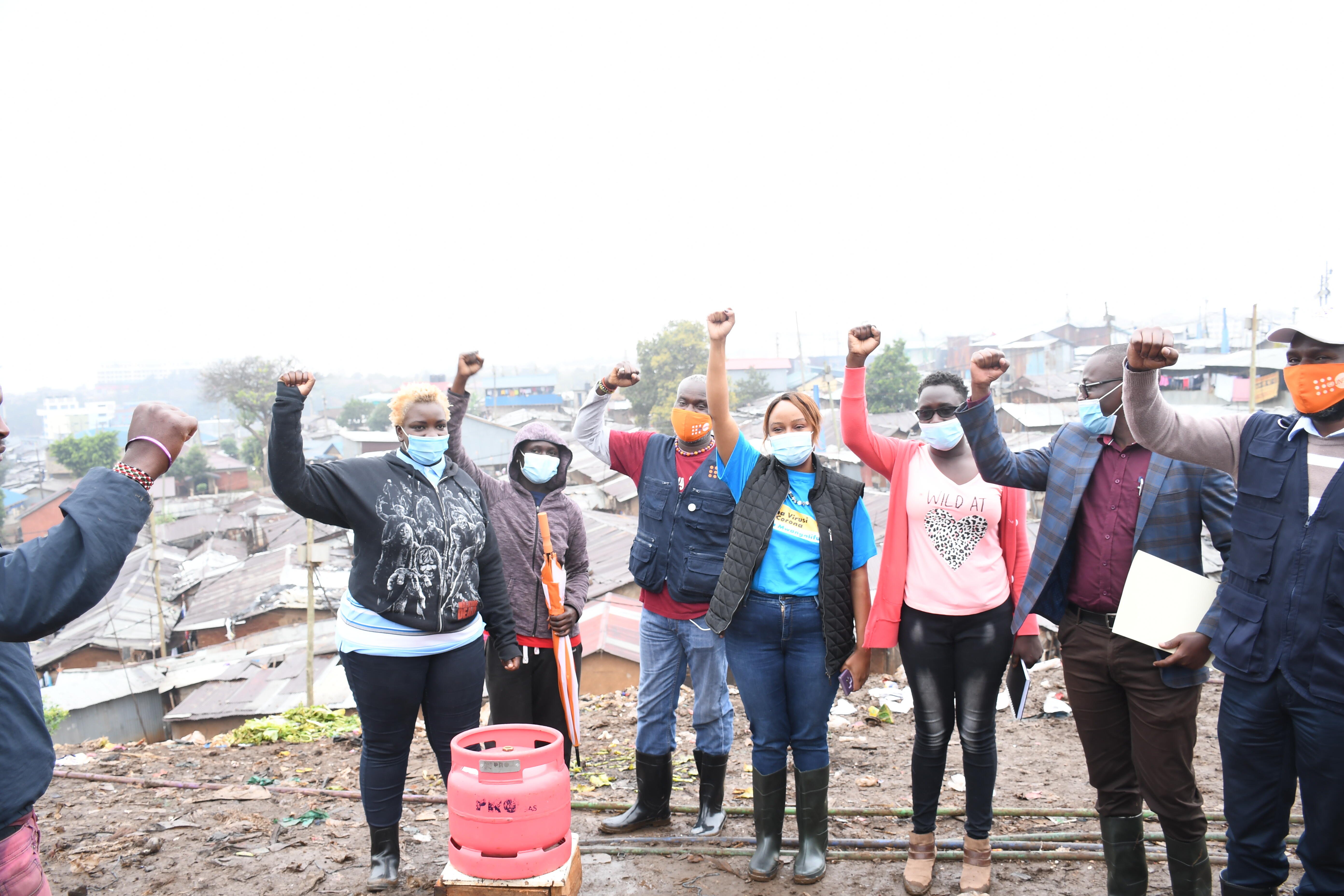Adolescent girls and young women in the sprawling Kibra slums flock to the ‘The Feministfor Peace, Rights and Justice Centre’ (FPRJC) offices to access contraception and sanitary wear. The Centre has been their source of support and hope during the Covid-19 pandemic as it is their source of sanitizers and masks that are critical in the densely populated settlement. They also receive psychosocial support especially for survivors of sexual violence, access to reading materials and training on livelihood initiatives such as soap making.
The Feminist for Peace, Rights and Justice Centre (FPRJC) was founded in 2016 to be a driving force that motivates transformative and equitable social and economic progress in the resource constrained Kibra informal settlement in Nairobi City County. The vision of the Centre is to nurture the leadership of young women and create spaces for their engagement in social, economic and policy making processes, and build their capacity to realize their full potential.
The Centre undertakes community Gender Based Violence (GBV) and Sexual and Reproductive Health (SRH) responses in the Kibera informal settlement where they focus on empowering young women with knowledge and skills to address their SRH and GBV challenges.
“The Centre helped to rebuild my life after I came from the Mathari Mental Hospital, broken and rejected by society. Here I found friends and the kind of acceptance that I needed for healing and reintegration into society,” says one of the
beneficiaries that the UNFPA and Ministry of Health team met when they visited the Centre. Eunice, a mother of three at the age of 24 having conceived her first born when fourteen years old as a result of sexual abuse is another beneficiary of the centre. Eunice pulsates with hope about her future and that of her children courtesy of the mentorship and social support that the Centre offers.
UNFPA is currently collaborating with the FPRJC to reduce the vulnerability of women and girls to gender based violence and ensure timely access to quality services for survivors. Some of the activities being undertaken with the support of UNFPA’s partners include life skills training for adolescent girls and young women; livelihood training and linkages for adolescent girls and young women; community dialogues on sexual and reproductive health rights (SRHR); awareness creation on gender-based violence through social media campaigns; and training of young activist on SRHR.
UNFPA is also supporting a rescue facility run by the Centre, which provides psychosocial support, strengthening of referral services, and access to justice for survivors. UNFPA has donated 2 double- decker beds with bedding and 100 dignity kits towards supporting the FPRJC especially during Covid-19.
Editar Achieng, the leader and brain child behind the Centre’s activities thanked UNFPA Representative, Dr. Ademola Olajide, and Ministry of Health Chief Administrative Secretary, Dr. Mercy Mwangangi for visiting the Centre. “We appreciated you for
believing in our small efforts and making us feel we accomplished our dream,” she tweeted.
“Angels on earth! There is no better way to describe the group of ladies that I met today at Kibera. They proudly call themselves the Feminist Movement. They even have an anthem to boot and I had my first lesson at it. I am now a life-time member!” wrote Dr. Mercy Mwangangi on her twitter page after joining UNFPA at the Centre to celebrate the spectacular achievement of young women in the midst of immeasurable obstacles. She said that the Centre will be linked to Government health services in the area in line with the Government’s plan to put up 24 new hospitals in Nairobi that included one in Kibra.
The UNFPA Representative joined the young women and girls in reciting their self-affirmation anthem
and applauded their efforts to provide access to a range of services for adolescents and young people in a severely deprived situation. Dr. Ademola acknowledged that Covid-19 had aggravated the plight of young people especially in informal settlements and continues to be a major threat to the fulfillment of their potential.
Addressing young people and community leaders gathered at the centre, Dr. Ademola promised that “UNFPA will do whatever it takes to serve the underserved. The energy and dynamism of the young women mobilized by the Centre takes us to the tipping point when their leadership on the various issues that underpin sustainable development ceases to be a matter of tomorrow and becomes commendable fact of today!”


